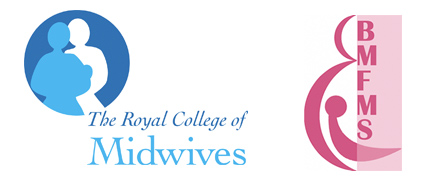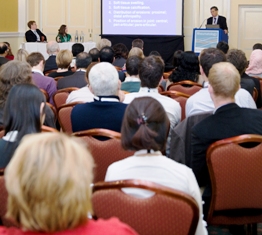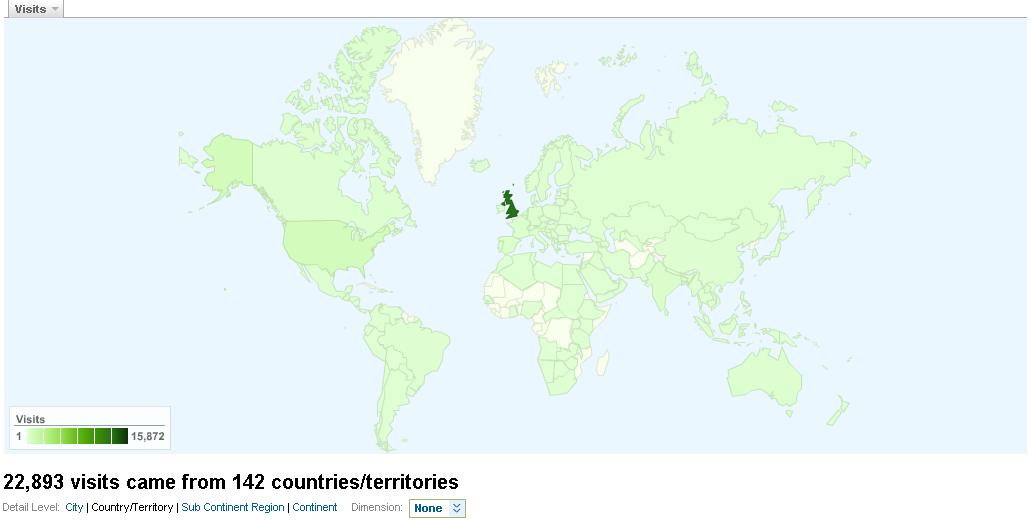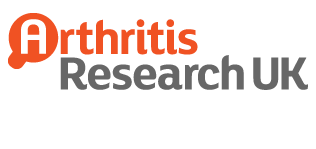Research Training Fellowships
Wellbeing of Women in association with the RCOG invites applications for Research Training fellowships to encourage medical graduates to pursue a career in academic medicine.
The Fellowship must be undertaken in the UK or Eire and the research can be in basic science, clinical or translational research in one of the following three areas:
1. Gynaecological Cancers
2. Pregnancy and Birth including pre-term birth, miscarriage and fertility
3. Quality of Life issues including menopause, incontinence and prolapse, sexual health, menstrual disorders and endometriosis
The 2013 RTF round is now open. Applications must be received by Friday 7th September at 3pm
Fellowships are awarded for up to three years and cover the cost of a full time salary per annum for Specialty Registrars (or equivalent) and will be consistent with current NHS or academic scales. Registration fees for a higher degree and reasonable research expenses may be allowed and should be specified in the application form. The upper limit of this award is £200,000. Research Training Fellows will normally be expected to enrol for a higher degree. A Fellowship will only be awarded to an applicant who has been accepted for a place in a department with established expertise in the specified field. Candidates must also provide evidence of previous interest and a training component in research methodology. Both the training and research project must be capable of being brought to a conclusion within the duration of the Fellowship. Applications may be made for the financial support of work which is already in progress, or for a new project, provided a substantial element of training is provided during the course of the work.
Wellbeing of Women is delighted that our partnership with the Wellcome Trust which began in 2009 has continued. Suitable candidates may be considered by the Trust for the award of a Wellbeing of Women/Wellcome Trust Research Training Fellowship.
The award of a Fellowship is subject to the acceptance of the Wellbeing of Women’s Terms and Conditions for Research Grants and the following restrictions apply:
1. Fellowships are not intended as a project grant and may not be used to fund sub-specialty training.
2. Funds will not be released without evidence of ethical committee support.
3.
WoW does not pay indirect costs.
4.
Charges for administration by University or NHS Authorities will not be met.
The process:
Applications will be subject to external peer review. Shortlisted applicants will be advised in late January and asked to attend for interview by members of the Wellbeing of Women Research Advisory Committee at the Royal College of Obstetricians and Gynaecologists in London usually in late January or early February . Reasonable interview expenses within the UK or Eire will be reimbursed.
Shortlisted candidates will also be asked to formally agree to their application being considered by the Wellcome Trust, and may be asked to attend for interview at the Trust’s offices in London.These nominees will be required to sign up to the Wellcome Trust’s grant conditions, and any eventual award will be made in accordance with the Trust’s policy for costing Training Fellows.
Please complete the application form for Wellbeing of Women Research Training Fellowship 2013 and email a copy to Philip Matusavage at pmatusavage.wellbeingofwomen@rcog.org.uk. Please also send the original signed version to Philip Matusavage, Research Manager, 27 Sussex Place, Regent’s Park, London, NW1 4SP to be received by 3:00pm on Friday 7th September 2012
Please read the Research Training Fellowship Guidelines before completing the application form. Your application may be rejected if it does not follow these guidelines.
Entry Level Research Scholarships
Wellbeing of Woman in association with the RCOG, College of Midwives and the British Maternal Fetal Medicine Society, invites applications for Entry Level Scholarships to enable medical graduates to train in basic science, clinical or translational research in one of the following three areas:
1. Gynaecological Cancers
2. Pregnancy and Birth, including pre-term birth, miscarriage and fertility
3. Quality of Life issues; including menopause, incontinence and prolapse, sexual health, menstrual disorders and endometriosis
The research must be undertaken in the UK or Eire. One scholarship is reserved for midwives.
The 2013 ELS Round is now open. Applications must be received by Friday 14th September at 3pm
They are pleased to announce that they are again joining with the Royal College of Midwives and the British Maternal Fetal Medicine Society in offering these scholarships.
Entry-Level Research Scholarships are to provide ‘pump-priming’ funds to enable trainees to be exposed to a research environment, or to obtain pilot data for bids for definitive funding. Applicants will normally be within the first few years of graduation, and would not previously have been involved in substantial research projects. Scholarships are a single payment up to a maximum of £20,000 to go towards salary and/or laboratory costs.
Successful completion of an Entry-Level Research Scholarship will be viewed positively should an applicant subsequently choose to apply for a Wellbeing of Women Research Training Fellowship.
The award of a Scholarship is subject to the acceptance of Wellbeing of Women’s Terms and Conditions for Research Grants, and the following restrictions apply:
2. The research must be undertaken in the UK or Eire.
3. WoW does not pay indirect costs.
4. Charges for administration by University or NHS Authorities will not be met.
5. WoW does not cover University fees.
The RKE Operations team can help you with your application.












 Defra intends to invest in projects for development of proposed actions, innovations and associated feasibility studies that will increase the resilience of UK infrastructure to a future changing climate.
Defra intends to invest in projects for development of proposed actions, innovations and associated feasibility studies that will increase the resilience of UK infrastructure to a future changing climate.




















 SPROUT: From Sustainable Research to Sustainable Research Lives
SPROUT: From Sustainable Research to Sustainable Research Lives BRIAN upgrade and new look
BRIAN upgrade and new look Seeing the fruits of your labour in Bangladesh
Seeing the fruits of your labour in Bangladesh Exploring Embodied Research: Body Map Storytelling Workshop & Research Seminar
Exploring Embodied Research: Body Map Storytelling Workshop & Research Seminar Marking a Milestone: The Swash Channel Wreck Book Launch
Marking a Milestone: The Swash Channel Wreck Book Launch ECR Funding Open Call: Research Culture & Community Grant – Application Deadline Friday 12 December
ECR Funding Open Call: Research Culture & Community Grant – Application Deadline Friday 12 December MSCA Postdoctoral Fellowships 2025 Call
MSCA Postdoctoral Fellowships 2025 Call ERC Advanced Grant 2025 Webinar
ERC Advanced Grant 2025 Webinar Update on UKRO services
Update on UKRO services European research project exploring use of ‘virtual twins’ to better manage metabolic associated fatty liver disease
European research project exploring use of ‘virtual twins’ to better manage metabolic associated fatty liver disease